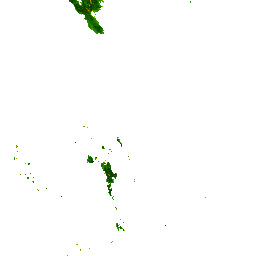Product requests
Tile requests
Product requests
List available products
Returns a list of available products within Future Radar. This function can be used to move the map to a specific product. The correct URL formatting is shown below.
| https://{{api} or {apidev}}.accuweather.com/maps/v1/radar/futureSIR/request_products?apikey={your key}&locations={boolean} |
Setting locations to true will return an extra object within each product that provides a bounding box for that product.
Example
Top of page
List active products
Returns a list of products within the current map bounding box. The correct URL formatting is shown below.
| https://{{api} or {apidev}}.accuweather.com/maps/v1/radar/futureSIR/preferred_box_products?apikey={your key}&toplat={north latitude}&bottomlat={southern latitude}&rightlon={eastern longitude}&leftlon={western longitude}&zoom={zoom level}&attribute={boolean} |
Example
Top of page
Request frames for products
Returns a list of mutual frames for all listed products. The correct URL formatting is shown below.
| https://{{api} or {apidev}}.accuweather.com/maps/v1/radar/futureSIR/preferred_product_frames?apikey={your key}&products={major}-{minor},{major}-{minor},{major}-{minor},...&attribute={boolean} |
Example
Top of page
Request frames for box
Returns a list of frames within the current map bounding box. The response includes attributions. The correct URL formatting is shown below.
| https://{{api} or {apidev}}.accuweather.com/maps/v1/radar/futureSIR/preferred_box_frames?apikey={your key}&toplat={north latitude}&bottomlat={southern latitude}&rightlon={eastern longitude}&leftlon={western longitude}&zoom={zoom level}&attribute={boolean} |
Example
Top of page
Request products for tiles
Returns a list of products within a specified map bounding box. The top left corner of the box is defined by X1, Y1 and the bottom right corner of the box is defined by X2, Y2. The correct URL formatting is shown below.
| https://{{api} or {apidev}}.accuweather.com/maps/v1/radar/futureSIR/preferred_tile_products?apikey={your key}&x1={top left x coordinate}&y1={top left y coordinate}&x2={bottom right x coordinate}&y2={bottom right y coordinate}&z={zoom level}&attribute={boolean} |
Example
Top of page
Tile Requests
There are multiple methods for requesting tiles from Future Radar. ZXY format provides a means of identifying tiles directly by coordinates, while quadkey identifies tiles by a unique code. Tile requests that yield no graphical data will redirect to a blank tile. See Blank Tiles below for details.
ZXY format
The ZXY URL format is a standard Google format. It requires the zoom level (z), the x coordinate (x), the y coordinate (y), and a time and date for the requested weather data. These four variables determine which tile the call returns and what information it contains.
| https://{{api} or {apidev}}.accuweather.com/maps/v1/radar/futureSIR/zxy/{yyyy-mm-dd}T{hh:mm:ss}Z/{zoom}/{x}/{y}.png?apikey={your key}&display_mode={display mode} |
Example
A search for a specific tile with a zoom level of 3, at coordinates X=2 and Y=2 at 15:50 on October 17th, 2019 will look like this:
Top of page
Quadkey format
This method gets tiles using Microsoft's quadtree key (quadkey) format. Quadkey is an alternative method for identifying individual tiles in a map grid. Instead of separating values, it combines all identifying factors into a solid numerical string. The correct URL formatting is shown below.
| https://{{api} or {apidev}}.accuweather.com/maps/v1/radar/futureSIR/quadkey/{yyyy-mm-dd}T{hh:mm:ss}Z/{quadkey value}.png?apikey={your key}&display_mode={display mode} |
Example
Top of page
Blank tiles
If a tile request yields no graphical data, the API returns a generic blank tile. The URL redirects to a static address that contains the blank tile. The correct URL formatting is shown below.
| https://{{api} or {apidev}}.accuweather.com/maps/v1/radar/futureSIR/blank.png?apikey={your key}&display_mode={display mode} |
Top of page

